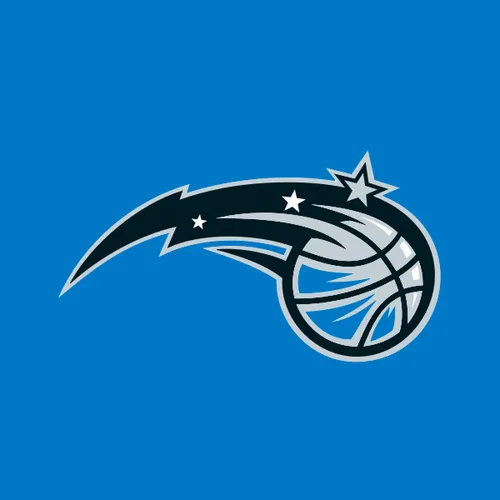







Backend Development Jobs in the Sports Industry: A Quick Guide
Introduction
The sports industry has been transformed by digital technology and continues to evolve at a rapid pace. Backend development plays a critical role in creating the digital infrastructure that powers various aspects of the sports ecosystem, from web and mobile applications to data management and analytics. In this comprehensive guide, we explore the role of backend development professionals in the sports industry, the types of jobs available, salary expectations, essential skills, and tips for landing a job in this competitive field.
The Role of Backend Development Professionals in the Sports Industry
Backend developers are responsible for building and maintaining the server-side logic, databases, and APIs that power web and mobile applications, analytics platforms, and other digital tools in the sports industry. Their work is vital for supporting various aspects of the sports ecosystem, such as fan engagement, player performance analysis, and team management. Backend developers collaborate with frontend developers, designers, and other team members to create seamless digital experiences that enhance the world of sports for fans, athletes, and organizations alike.
Types of Backend Development Jobs in the Sports Industry
Web Application Developer: Develops and maintains web applications for sports organizations, such as team websites, league management platforms, and online fan communities.
Mobile Application Developer: Builds and maintains mobile apps for the sports industry, including team apps, live score and stats apps, and sports news apps.
API Developer: Designs, builds, and maintains APIs that enable the integration of various sports data and services across different applications and platforms.
Database Developer: Designs and manages databases to store and manage large volumes of sports data, such as player stats, game results, and historical records.
Data Engineer: Develops the infrastructure and pipelines for collecting, storing, and processing sports data, enabling advanced analytics and machine learning applications.
DevOps Engineer: Ensures the reliable deployment, scaling, and monitoring of backend systems and applications in the sports industry.
Security Engineer: Works to protect the integrity and confidentiality of sensitive sports data and systems from security threats and breaches.
Salary Expectations
Entry-level backend developers in the sports industry can expect a salary range of $50,000 to $70,000 per year. Junior-level developers can expect salaries between $70,000 and $90,000 per year, while intermediate-level developers can expect to earn between $90,000 and $110,000 per year. Senior-level backend developers can earn upwards of $110,000, with some positions offering salaries in the range of $130,000 to $150,000 per year, depending on the organization, location, and specific job requirements.
Essential Skills for Success in Backend Development in the Sports Industry
Proficiency in one or more backend programming languages, such as Python, Java, Ruby, or Node.js.
Experience with database management systems, such as MySQL, PostgreSQL, or MongoDB.
Knowledge of API development and integration, using technologies like REST, GraphQL, or gRPC.
Familiarity with backend frameworks and tools, such as Django, Ruby on Rails, or Spring Boot.
Experience with cloud platforms and services, such as AWS, Google Cloud, or Microsoft Azure.
Strong understanding of software development best practices, including version control, testing, and continuous integration.
Good communication and collaboration skills, as backend developers often work in cross-functional teams.
Tips for Landing a Backend Development Job in the Sports Industry
Build a strong portfolio: Showcase your backend development skills by creating a portfolio of personal projects related to sports or by contributing to open-source projects. This will demonstrate your passion for sports and your technical expertise.
Networking: Attend industry conferences, meetups, and networking events to meet professionals in the sports industry and learn about job opportunities. Join online forums and social media groups to engage with others who share your passion for sports and technology.
Develop a strong online presence: Ensure your LinkedIn profile is up-to-date and highlights your backend development skills, experience, and projects related to sports. Showcase your portfolio on a personal website and consider writing blog posts or articles about your experiences or insights in sports tech.
Tailor your resume and cover letter: Customize your resume and cover letter to highlight your relevant skills and experience for each job application. Emphasize your passion for sports and any projects or achievements that demonstrate your expertise in the field.
Stay up-to-date with industry trends: Keep abreast of the latest advancements in backend development and the sports industry to ensure you are knowledgeable about current trends and technologies. This will help you better understand the needs of potential employers and make you a more attractive candidate.
Develop a niche expertise: Consider specializing in a particular aspect of backend development or sports technology, such as real-time data processing, machine learning, or sports analytics. This will make you stand out from other candidates and could lead to more specialized and higher-paying job opportunities.
Prepare for technical interviews: Practice your problem-solving and coding skills by working through backend development challenges and exercises. Be ready to discuss your previous projects, your approach to solving technical problems, and your knowledge of backend development best practices during interviews.
Conclusion
The sports industry offers a wide range of exciting opportunities for backend developers who are passionate about using technology to enhance the world of sports. By developing a strong skill set, building a portfolio, networking, and staying up-to-date with industry trends, you will be well-positioned to land a rewarding job in the backend development sector of the sports industry. With dedication and persistence, you can contribute to the ever-evolving sports tech landscape and make a lasting impact on the industry. Check out all of the currently-hiring backend development roles in sports here.



























